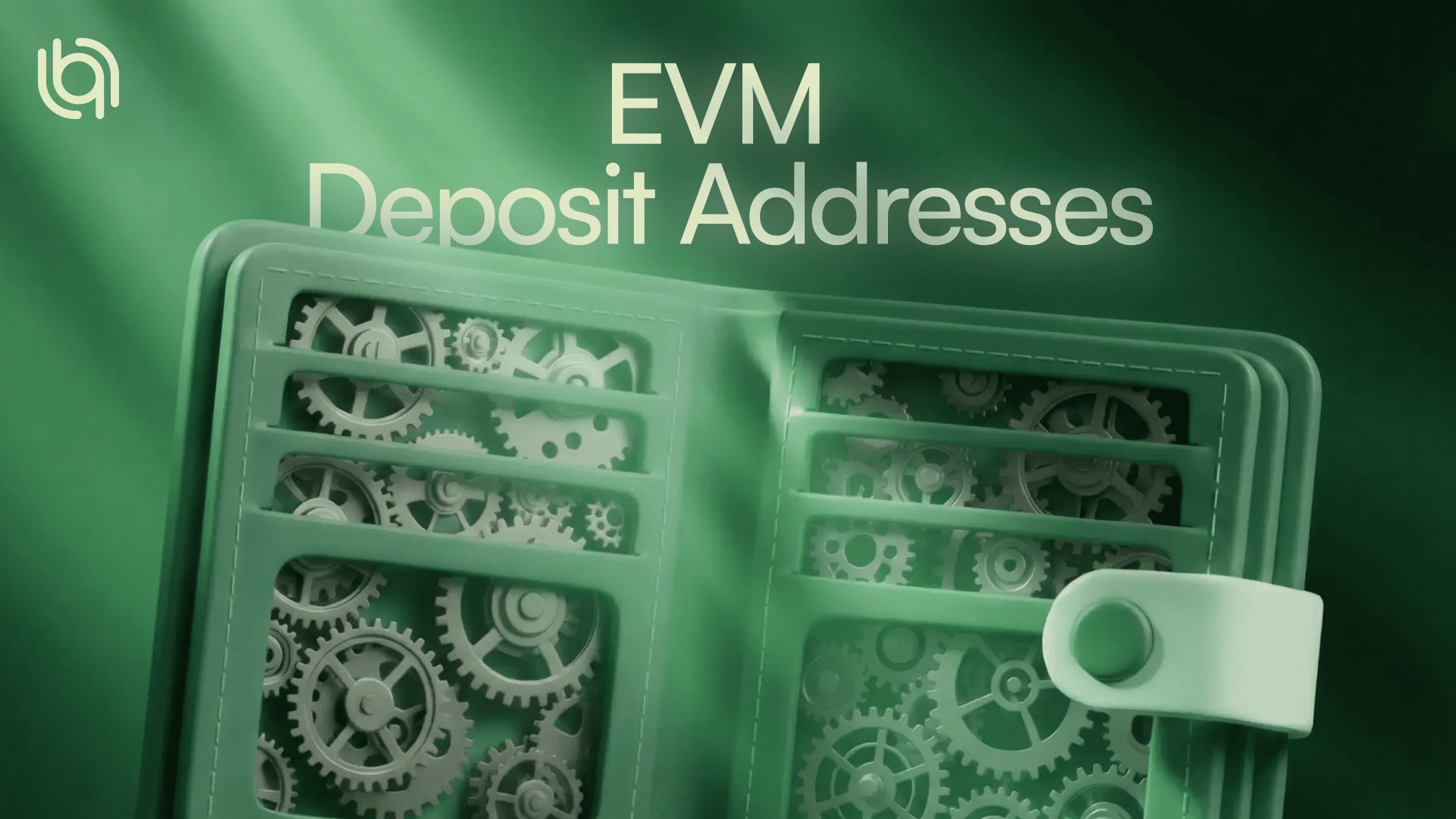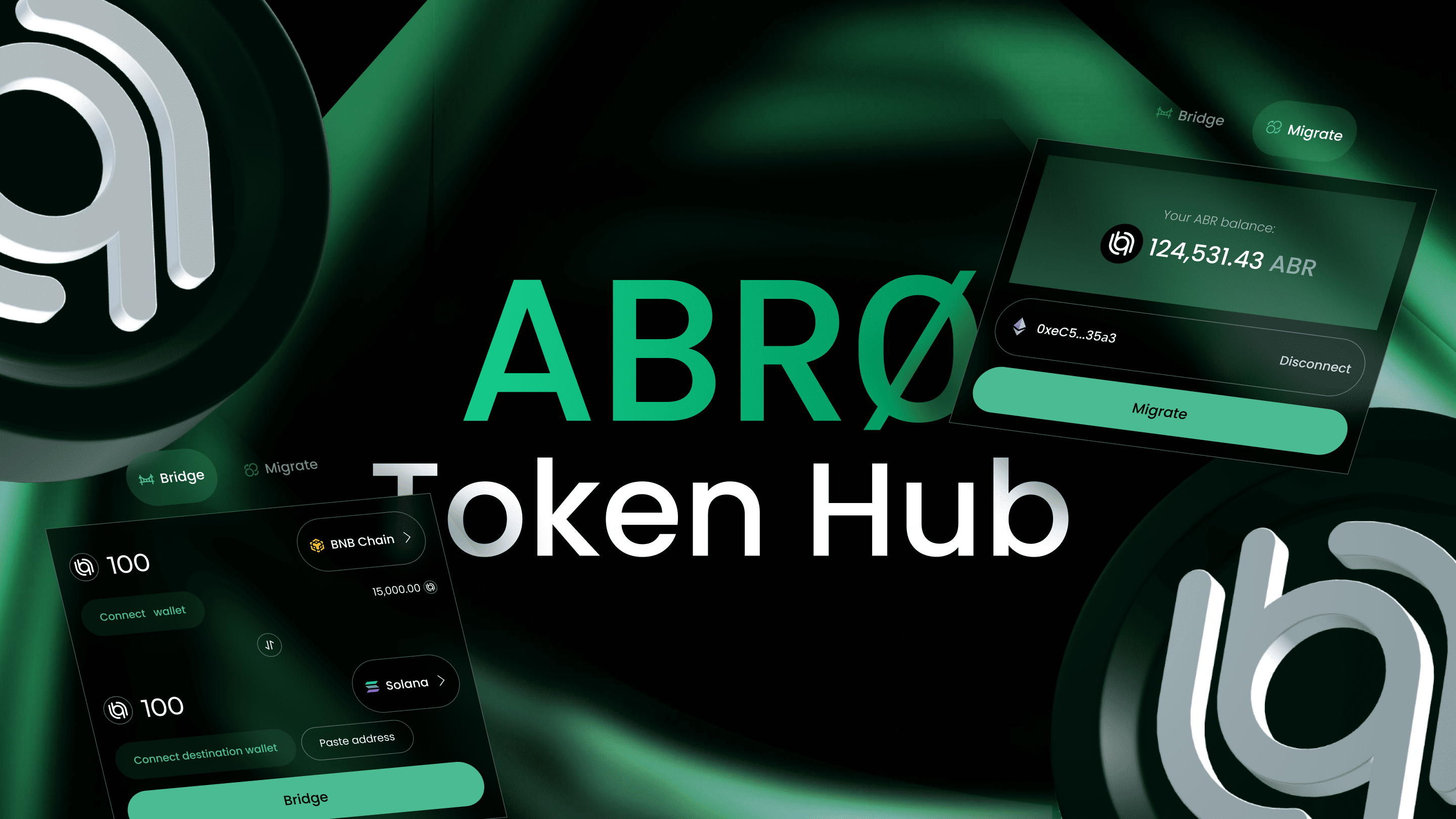Integrating Allbridge Core: One Bridge, Many Options
Cross-chain stablecoin transfers are often messy: new wallets, missing gas, and confusing user flows lead to lost conversions.
Allbridge Core changes that.
With a single integration, you unlock seamless, gas-ready transfers across Ethereum, Tron, Solana, Stellar, Sui, Arbitrum, and more. Whether through SDK, REST API, or a smart contract proxy, Allbridge Core adapts to your stack, allowing your users to move funds effortlessly and your product to scale without friction.

Why Choose Allbridge Core for Cross-Chain Transfers?
Cross-chain stablecoin transfers are often messy.
Users face new networks, unfamiliar wallets, gas tokens, and multiple tools just to move their funds.
Allbridge Core makes it simple.
With a single integration, you unlock seamless transfers across leading blockchains:
Ethereum, Tron, Solana, Stellar, Sui, Arbitrum, Avalanche, Base, BNB Chain, Celo, OP Mainnet, Polygon, Sonic, and more to come.
Common Pain Points We Solve
- You hold USDC on Ethereum, but your users need it on Tron, Stellar, or Sui
- Your dApp runs on Solana, but you want to attract users from EVM networks
- Your users are confused:
- Which wallet should they use?
- Where do they find a DEX?
- How do they get gas on a chain they’ve never used?
Result: many never complete the transfer, and you lose conversions.It doesn’t have to be this way. Allbridge Core makes it simple.
How We Solve This
- One-step move USDC on Ethereum to USDT on Tron, including gas (on request).
- No wrappers, no hidden swaps, no stuck funds, no guessing.
- We handle edge cases:
- Activating an account on Stellar.
- A simple tool to create a trustline when it’s needed.
- We deliver native gas tokens alongside the transfer, so even if it’s a brand-new wallet, it’s ready to go instantly.
Allbridge Core in Action
Allbridge Core is the engine powering:
- Wallets that support seamless stablecoin swaps across chains (Phantom, OKX, Binance already support Allbridge Core. Unstoppable wallet is next.)
- DeFi protocols with routing that just work (ex. Rango Echange, Jumper Exchange)
- Games onboarding users via EVM, Solana, Sui or Stellar without friction
- Platforms that skip CEXes entirely
- Apps that don’t want to explain gas, approvals, or wallets ever again
Built for Growth
More chains = more users.
Allbridge Core lets your product scale instantly, without rebuilding or migrating.
You keep your UX.
We handle the complexity: routing, gas, delivery, and token conversions.
Flexible Integration Options
Whether you’re building a lightweight frontend, a scalable backend, or a fully custom on-chain experience, Allbridge Core adapts to your needs.
Option 1: JavaScript SDK
The easiest way to integrate.
Ideal for: web apps, wallets, DeFi UIs.
- Plug directly into your frontend or backend (Node.js)
- Full control over token selection, fees, and flows
- Minimal setup, instant bridge access
Option 2: REST API
The universal connector.
Ideal for: backend platforms, mobile apps, any language or framework.
- Host and manage requests on your servers
- Language-agnostic: use Python, Go, PHP, Rust, etc.
- Great for teams with custom infrastructure or large-scale apps
Option 3: Smart Contract Proxy
Your own contract layer on top of Allbridge Core.
Ideal for: wallets, games, protocols, or platforms that want deeper logic and monetization.
- Charge custom fees per transfer
- Track usage per user or partner
- Add on-chain logic, event tracking, or reward systems
- Perfect for advanced monetization or analytics
No matter your stack, we’ve got you covered.
REST API or SDK: Same Power, Flexible Integration
Allbridge Core provides you with the freedom to integrate cross-chain value transfers in the way that best fits your product. Both REST API and JavaScript SDK connect to the same engine, use the same logic, and deliver the same results.
Whether you’re building a frontend-only app, a backend system, or something in between, you choose the integration style.
Let’s walk through how easy it is to send USDC from Ethereum to Polygon in just a few steps.
Step 1. Get the tokens and chains
Using REST API
const chains = await axios.get(`${REST_API_URL}/chains`);
const sourceToken = chains.data["ETH"].tokens.find(token => token.symbol === "USDC");
const destinationToken = chains.data["POL"].tokens.find(token => token.symbol === "USDC");Using SDK
const sdk = new AllbridgeCoreSdk({ ETH: WEB3_PROVIDER_URL });
const chains = await sdk.chainDetailsMap();
const sourceToken = chains.ETH.tokens.find(token => token.symbol === "USDC");
const destinationToken = chains.POL.tokens.find(token => token.symbol === "USDC");Step 2. Estimate gas fee in stables
Using REST API
const gasFee = await axios.get(`${REST_API_URL}/gas/fee?
sourceToken=${sourceToken.tokenAddress}
&destinationToken=${destinationToken.tokenAddress}
&messenger=ALLBRIDGE`);Using SDK
const gasFee = await sdk.getGasFeeOptions(sourceToken, destinationToken, Messenger.ALLBRIDGE);Step 3. Approve token for transfer (if needed)
Using REST API
const allowance = axios.get(`${REST_API_URL}/check/allowance?
ownerAddress=...
&tokenAddress=${sourceToken.tokenAddress}`);
if (!allowance) {
const approvalTx = await axios.get(`${REST_API_URL}/raw/approve?
ownerAddress=...
&tokenAddress=${sourceToken.tokenAddress}`);
await sendEvmRawTransaction(approveTx);
}Using SDK
const allowance = await sdk.bridge.checkAllowance({ token: sourceToken, owner: fromAddress, amount });
if (!allowance) {
const approveTx = await sdk.bridge.rawTxBuilder.approve({ token: sourceToken, owner: fromAddress });
await sendEvmRawTransaction(approveTx);
}Step 4. Build and send the bridge transaction
Using REST API
const bridgeTx = await axios.get(
`${REST_API_URL}/raw/bridge?...` // fill in amount, sender, recipient, token addresses, messenger, fee, etc.
);
await sendEvmRawTransaction(bridgeTx);Using SDK
const bridgeTx = await sdk.bridge.rawTxBuilder.send({// fill in amount, sender, recipient, token addresses, messenger, fee, etc.});
await sendEvmRawTransaction(bridgeTx);Simple calls. One bridge transaction. One unified bridge interface for all directions. You send tokens from your dApp, users receive funds + gas ready to go if needed. Same outcomes. Two integration styles. Pick what fits best. Still not sure? Reach out to our Discord dev channel - we’ll guide you through.
Smart Contract Proxy
A proxy contract on top of Allbridge Core lets you add monetization, advanced tracking, and on-chain logic, but it’s optional and not required for simple integrations
When to use a proxy:
Wallets - use a proxy if you want to:
- Earn a fee on every transfer
- Track usage per wallet or partner
- Mark transactions with your own logic or ID
DeFi protocols - use a proxy if you want to:
- Build meta-routing or aggregation flows
- Embed bridging into liquidity movement
- Keep all logic and event tracking fully on-chain
Games - use a proxy if you want to:
- Monetize deposits or swaps
- Trigger custom in-game logic after bridging
- Run on-chain reward or unlock systems
Platforms (off-ramps\CEX alternatives) - use a proxy if you want to:
- Control liquidity pools.
- Integrate with off-chain accounting or payout systems.
- Generate on-chain proofs or transaction receipts for compliance or reporting.
Apps avoiding wallet/gas friction - use a proxy if you want to:
- Automate gas provisioning for users.
- Simplify the onboarding flow by removing manual approvals.
- Combine bridging with other app-specific logic in one transaction.
You don’t need a proxy if:
- You just want users to send and receive funds across chains
- Your flows are one-off or fixed-path transfers
- Users are simply bringing stables into your dApp
- You only need to abstract the complexity, but not own the process
Why it matters:
A proxy is optional, but for teams aiming for monetization, analytics, or custom flows, it can turn a basic bridge into a powerful product feature.
We can help design your contract or provide our audited template to get you started.
Why Add Cross-Chain to a Working Product
Your product works, so why change it?
Because your users don’t stay on one chain, and neither should you.
Integrating Allbridge Core allows you to:
- Reach new markets: Ethereum, Tron, Solana, Arbitrum, Sui, Stellar, and more.
- Support users where they already are, no need for them to move to your chain first.
- Avoid centralized exchanges, just onboard users directly.
- Increase conversions, remove blockers like gas, wallet setup, or approvals.
- Expand without rewriting, integrate once, unlock many chains.
- Boost revenue, add monetization through proxy contracts.
Your current users get more value.
Your future users can find and join you more easily.
And your product keeps growing without friction or redesign.
What’s Next?
Ready to start building? We’ve got everything prepared:
- Smart Contract Proxy Example: github.com/allbridge-public/allbridge-proxy-contract-example
- JavaScript SDK: github.com/allbridge-public/allbridge-core-js-sdk
- Self-hosted REST API: github.com/allbridge-public/allbridge-core-rest-api
- Developer Documentation: docs-core.allbridge.io
- Join the community on Discord: discord.com/invite/ASuPY8d3E6




-0a4714b2-c0f8-4c92-a0ea-e47c5d800587.png)